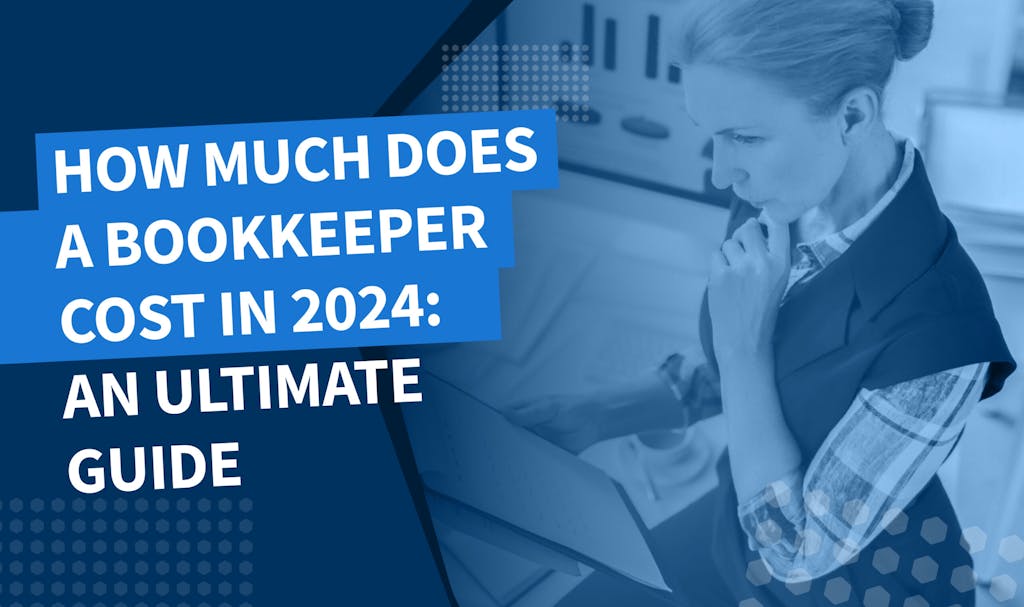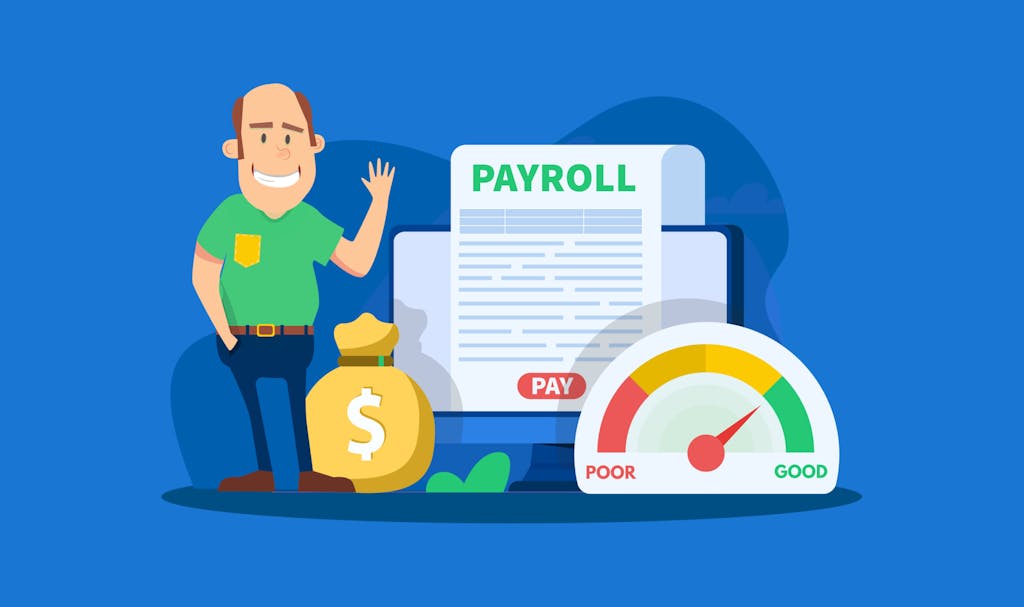
Let’s be honest, payroll is one of the more important aspects of running a successful business. You could have the best product on the market and the most popular brand, but if you can’t pay your staff accurately and on time, your business will struggle.
But navigating today’s complex payroll environment is not easy. Businesses must balance payroll accuracy and timeliness with compliance and cost-effectiveness. Throw into the mix the rise of remote working and global workforces, and payroll can get pretty complicated.
Unsurprisingly, outsourced payroll services have grown in popularity, with almost three-quarters of businesses choosing to outsource all or part of their payroll operations. In this article, we’ll explore everything you need to know about the cost of payroll services, including:
- Factors that influence payroll costs
- Different pricing structures
- Tips for choosing the right payroll provider
What are payroll services?

An example of payroll services from SurePayroll.
Payroll services encompass the processes and tasks involved in ensuring that people are paid for the work they perform accurately, on time and in line with regulatory requirements.
Key aspects of payroll include:
- Calculating wages: including hourly pay, day rates, monthly salaries or bonuses
- Deducting tax: calculating and withholding various taxes, including income tax, social security payments and health care contributions
- Administering benefits: calculating and administering pay-related benefits, such as paid time off, sick pay, parental leave, health insurance and pension contributions
- Regulatory compliance: staying compliant with the relevant laws and regulations
- Reporting and record-keeping: maintaining accurate records for audits, legal compliance and internal reporting
- Year-end processing: ensuring that staff have the information and documents they need to file personal tax returns
- Handling employee changes: such as new hires, promotions, pay increases or terminations
Handling these processes and tasks in-house can be a huge strain on resources — especially for smaller businesses that lack the right internal expertise and may run the risk of payroll errors that can be costly. The IRS estimates that 40% of SMEs in the US are fined each year due to incorrect filings and other payroll-related errors.
By choosing the right payroll service provider, you can rest assured that all pay-related processes will be handled smoothly and professionally.
Factors influencing payroll services costs
So, how much do payroll services typically cost? Well, the short answer is, it depends. Several factors can impact the cost of payroll services, including:
1. Number of employees
One of the most defining factors when it comes to the cost of payroll services is the size of your business. Most payroll providers charge on a sliding scale — the more employees that need paying, the higher the costs.
2. Payroll frequency
Whether you pay your staff weekly, biweekly or monthly can also impact the cost of payroll services. More frequent payrolls require more frequent calculations, tax deductions and reporting, potentially leading to higher costs.
3. Geographic location
Payroll regulations and tax laws vary according to the state or country you are operating in. If your business operates in multiple locations or has a remote global workforce, payroll naturally becomes more complex, leading to higher costs.
4. The required level of service
The extent of services you require will also influence costs. Basic services might include wage calculations, tax withholdings and payment processing. More comprehensive packages could include benefits administration, time and attendance tracking and custom reporting. The more services you need, the higher the cost.
5. Customization needs
If out-of-the-box services don’t suit your needs, you might require a more bespoke package, including custom reporting, integration with specific software systems or tailored solutions for complex compensation structures. Naturally, customized services tend to cost more than standard ones.
6. Compliance complexity
From a compliance perspective, some industries are inherently more complex than others. If your industry is subject to stringent regulatory compliance, or if you have a large number of hourly or contract employees, payroll processing becomes more intricate. This can increase the cost of payroll services.
7. Reputation and expertise
Finally, no two payroll service providers are the same. Some are household names with decades of experience and a trusted brand, while others are new kids on the block trying to make a reputation for themselves. Established providers with a strong track record tend to charge more than those who are just starting out.
Pricing structures for payroll services
Payroll service providers offer a range of pricing structures that accommodate the diverse needs and preferences of different businesses. Each pricing model comes with its own advantages and considerations.
In this section, we’ll highlight three different pricing structures, along with the potential range of costs associated with each:
1. Per employee, per paycheck
With this pricing structure, every time you run a payroll, you get charged based on the number of employees that will be paid. Prices typically range from $2 to $15 per employee, per paycheck, depending on the provider you use and the complexity involved.
This structure can work well if you run monthly payroll, but if you run it weekly, things can quickly get expensive.
2. Base fee + per employee
This hybrid pricing model is by far the most popular among payroll providers, with the vast majority offering it as standard. It involves a base fee that covers the core payroll processing services, coupled with an additional charge for each employee on the payroll, usually charged on a monthly rather than a per-payroll basis.
Some payroll providers also offer tiered pricing levels for the base fee, with additional features and services tacked on to more expensive tiers. Base fees range from around $30 to over $100.

An example of a base fee + per employee pricing structure with different pricing tiers from QuickBooks Payroll.
3. Percentage of payroll
Under this model, providers charge a percentage of your total payroll cost as their fee, typically between 1% and 3%. This structure isn’t that common, but it’s sometimes popular with businesses with larger payrolls or those seeking comprehensive payroll and HR services.
Comparing payroll costs for different business sizes

Popular payroll providers, their pricing and additional services.
Now we understand some of the different pricing structures available, let’s look at the approximate costs for three different business sizes.
For the sake of simplicity, we’ll calculate costs for monthly payroll using the base fee + per employee pricing structure as it’s by far the most popular among payroll providers. For our calculations, we’ll use an average base fee of $50 and a per-employee fee of $5.
- Small business (25 people): $175
- Medium-sized businesses (100 people): $550
- Large enterprise (500 people): $2,550
Please note: these are just average prices. In reality, prices will vary depending on the payroll provider you choose and the additional services you require, among other factors.
Understanding payroll fees and additional costs

The fees we’ve discussed above aren’t the only costs to consider when working with a payroll provider. Most providers have a range of additional costs that can add up if you aren’t careful.
For example, most providers charge a one-off fee for the initial setup and configuration. This could range from a few hundred dollars to over a thousand, depending on the size of your business and the provider you use.
Then there may be additional fees for data migration, customization, integration and training. These fees can vary wildly depending on the extent of the support you require.
Finally, most payroll providers charge extra for additional services that lie outside of basic payroll processing. For example, you could be charged extra for:
- Year-end reporting
- Benefits administration
- HR consulting and support
- Tax filing services
Payroll outsourcing vs. in-house costs
All things considered, outsourcing your payroll to an expert service provider is the easiest, most reliable way to ensure that your people get paid on time. But how does it compare cost-wise to handling payroll in-house?
Generally speaking, payroll outsourcing leads to significant cost savings, with businesses that outsource their payroll services spending 27% less than those that handle payroll in-house. In fact, lower costs was cited as the most important factor among businesses who choose to outsource, with 76% claiming it was important or very important.
This makes sense when you consider that the average salary for an in-house payroll administrator is over $60k, not to mention the subscription fees that come with payroll software, which can range from a few hundred to a few thousand dollars per year.
In addition to cost savings, outsourcing your payroll tends to lead to better results and fewer mistakes, allowing you to sidestep the financial cost and damage to morale that comes with inefficient payroll processes.
The average cost of payroll services

When it comes to the average cost of payroll services, there’s no one-size-fits-all answer. The expenses associated with outsourcing payroll management can vary due to a multitude of factors, including business size, the extent of services required and the pricing model used by the payroll provider.
To give you a general idea, however, the table below provides an overview of average monthly costs for three different business types. These calculations are based on the provision of basic payroll services (excluding additional fees and add-on services) using the base rate + per employee pricing structure.
| Small business (25 people) | Medium-sized business (100 people) | Large enterprise (500 people) | |
| Base rate + per employee | $175 | $550 | $2,550 |
| Average cost per employee | $7 | $5.5 | $5.1 |
As you can see, the average cost per employee becomes lower as the size of a team increases. This is because the base fee represents a smaller part of the overall cost. For very large enterprises, alternative pricing structures and custom plans may help bring down the average cost per employee further.
Tips for choosing a cost-effective payroll service provider
Choosing the right payroll service provider involves thorough research, careful evaluation and a clear understanding of your business’s needs. Here are some practical tips to help you make an informed decision.
1. Assess your business needs
Before you start searching for a payroll provider, make sure you first do the groundwork by assessing your unique business needs. You’ll be in a better position to make the right choice if you have a solid understanding of the following areas:
- Payroll budget
- Employee count
- Payroll frequency
- The need for additional services (tax filing, benefits administration, etc.)
- Growth projections in terms of headcount and payroll.
2. Evaluate service offerings
Once you understand your needs, you can review the range of services that different providers offer. You can use a service like TaxDome Advisor Directory to help you find the payroll provider that’s right for you. Pay special attention to the different packages that providers offer and how they relate to your needs. The goal here is to ensure that you only pay for services that you actually require.
3. Compare pricing structures
Analyze the cost breakdown of different providers’ pricing structures. Consider how different pricing models might impact your costs based on factors such as your number of employees, payroll frequency and projected business growth.
4. Request detailed quotes
Once you’ve done some initial research, create a short list of payroll providers and ask them to provide detailed quotes that include all potential costs, including setup fees and add-ons. This will give you a clear picture of the cost differences between providers.
5. Research reputation and reviews
Doing your due diligence on payroll providers isn’t just about assessing costs and services. It’s also a good idea to look into their reputations and what existing customers think. User reviews are an excellent way to gauge whether a service provider is meeting its customers’ expectations or not.
Before you sign on the dotted line, make sure you scrutinize contracts for any hidden fees or additional charges not mentioned in the quote. Clarify how the provider charges for additional services such as customization or training.
Frequently asked questions
We’ve covered a lot of ground in this guide, but to be sure you’ve got all the information you need to make an informed decision, let’s answer some frequently asked questions about payroll outsourcing services.
Can outsourcing payroll actually save my business money?
Yes, outsourcing can lead to significant cost savings. Firstly, it tends to be cheaper overall than running in-house payroll, especially for smaller businesses. Secondly, it cuts costs by reducing errors, avoiding penalties and freeing up your team to focus on delivering real value to your business.
Do I have to commit to a long-term contract?
Contract terms can vary among providers. Some offer flexibility with month-to-month arrangements, while others might require longer commitments. Be sure to choose a provider with contract terms that align with your needs and preferences.
How can I ensure that my data is secure when outsourcing payroll?
Prioritize providers with robust data security measures, such as encryption, secure servers and compliance with data protection regulations such as GDPR or HIPAA. It’s also worth researching their track records when it comes to data security.
Will outsourcing help with compliance?
Yes, reputable providers stay up to date with tax laws and compliance regulations, helping you avoid costly errors.
Can I access payroll data online?
Most modern payroll providers offer online self-service portals where you and your employees can access payroll information, pay stubs, tax forms and more. If this is important to you, be sure to check that the provider offers user-friendly and secure online access.
What happens if there’s an error in my payroll?
Providers should take responsibility for errors and work to rectify them promptly. To be sure, we recommend reviewing their policies on correcting mistakes and any associated costs.
Can I customize the payroll services to match my business’s needs?
Yes, many providers offer customization options to tailor their services to your business requirements, but be prepared to pay extra for bespoke payroll packages.
What if I need to make changes to my payroll?
Inquire about the provider’s process for accommodating changes, such as new hires, promotions or changes in payroll frequency. Make sure they clarify any costs associated with making such changes.
How can I determine the ROI of outsourcing payroll?
There’s no surefire way to do this, but you should consider both direct and indirect cost savings. For example, when evaluating ROI, you should consider reduced payroll processing times, decreased errors and potential penalty avoidance. You should also factor in the time your team can now allocate to core business tasks that drive revenue and growth.
Conclusion
Selecting the right payroll service provider requires careful consideration. With so many options to choose from, you need a solid understanding of the different pricing structures and packages available, and how they will impact your bottom line.
By understanding your business’s unique needs, evaluating potential providers and comparing quotes, you can make an informed decision that aligns with your budget and operational requirements.

Thank you! The eBook has been sent to your email. Enjoy your copy.
There was an error processing your request. Please try again later.
Looking to boost your firm's profitability and efficiency?
Download our eBook to get the answers



